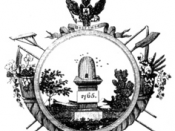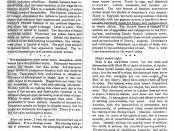Justice, the rights of choice, freedom from domination, national and civil liberty; in today's world society's whose citizens have personal and political liberties are considered free. But do institutionalized rights guarantee freedom? Does political liberty create a just and free society? When good Governments go bad and overstep their mark do citizens have the right of dissent? Throughout history thinkers have grappled with questions like these and come to a variety of conclusions, both in support of and protest and against it.
Freedom is a universal ideal. It occurs when there are no restraints placed on personal choice by another individual, state or authority. To be truly free there must also be an absence of any natural conditions which could prevent the actioning of a persons free will. This ideal had been institutionalized by modern society to create an environment where an individual's choice is maximized and the restraints on their will minimized.
This has coincided with the application of science and reason to politics, the rise of the individual, and the decline of belief that the common good is the ultimate end.
In this 'free' society, individuals have personal rights, and political and social liberty, and are free from both foreign domination, and a despotic government. This concept of free is the freedom of individual rights and individual responsibilities. In this type of liberal free society one is not imposed on to ensure the freedom of others. Collective freedom therefore is not guaranteed by ensuring that every person has access to the resources required to obtain their will or the means to achieve their desired end.
Citizens make the decisions that affect the collective society through their vote. They can act as they choose and achieve their own end as long as they do not break the laws...



Good read with few errors
An interesting paper with few structure and organizational errors. Great research and references.
Well done.
5 out of 5 people found this comment useful.